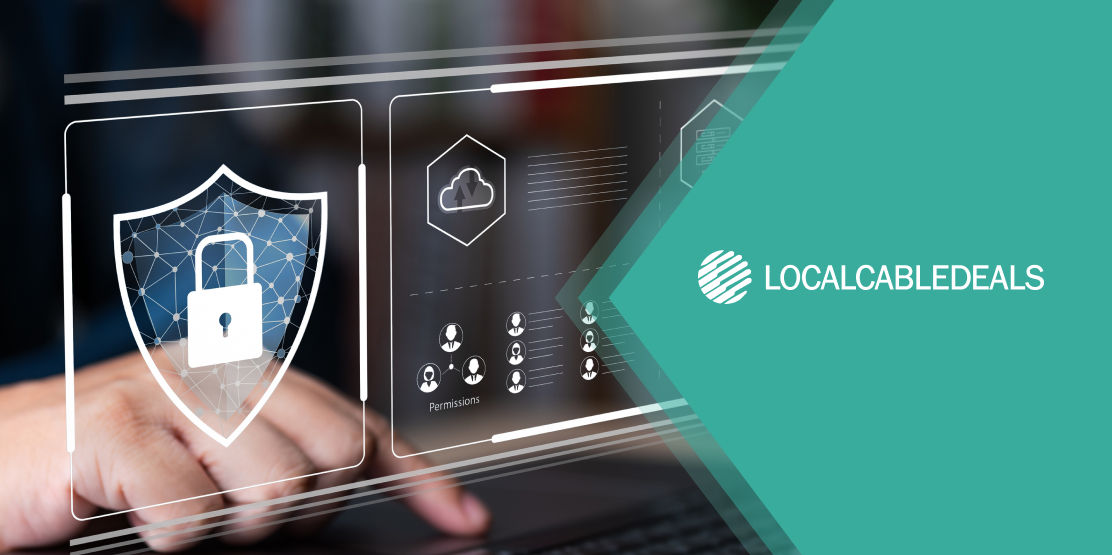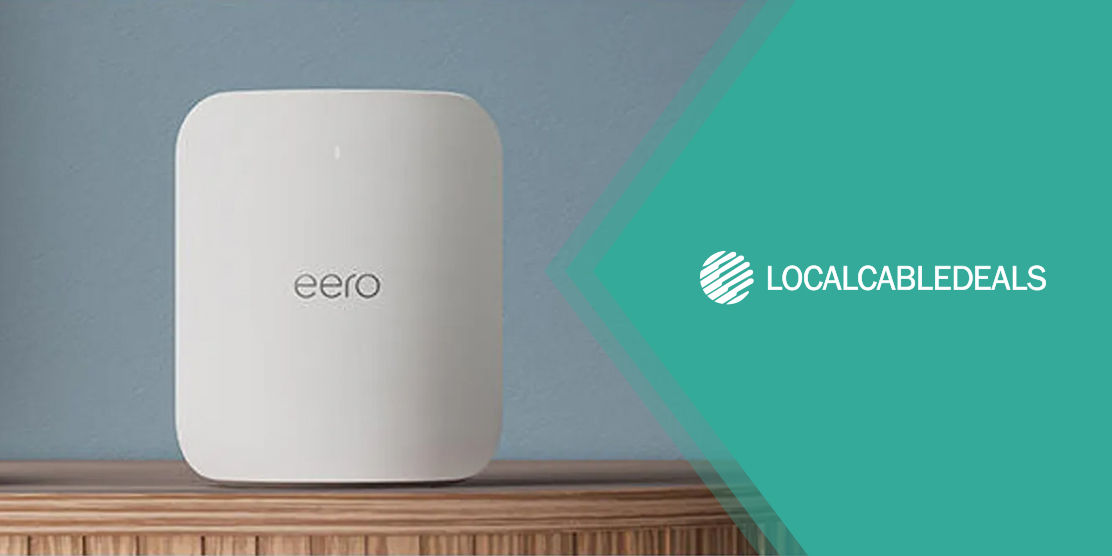Cyberattacks are a growing challenge counter to advancements in internet technology. While the internet is booming with more information and entertainment options than ever, let's not forget about potential dangers lurking around the corners.
Your internet browser is the doorway to the World Wide Web; hence, safe online browsing practices are integral to establishing a secure internet connection.
Why is Online Safety Important?
We take safety precautions in many situations where risk is involved. For example, bikers wear a helmet to avoid severe head injuries in the event of a road accident. Similarly, people wear shoes with extra cushioning and excellent traction for hiking.
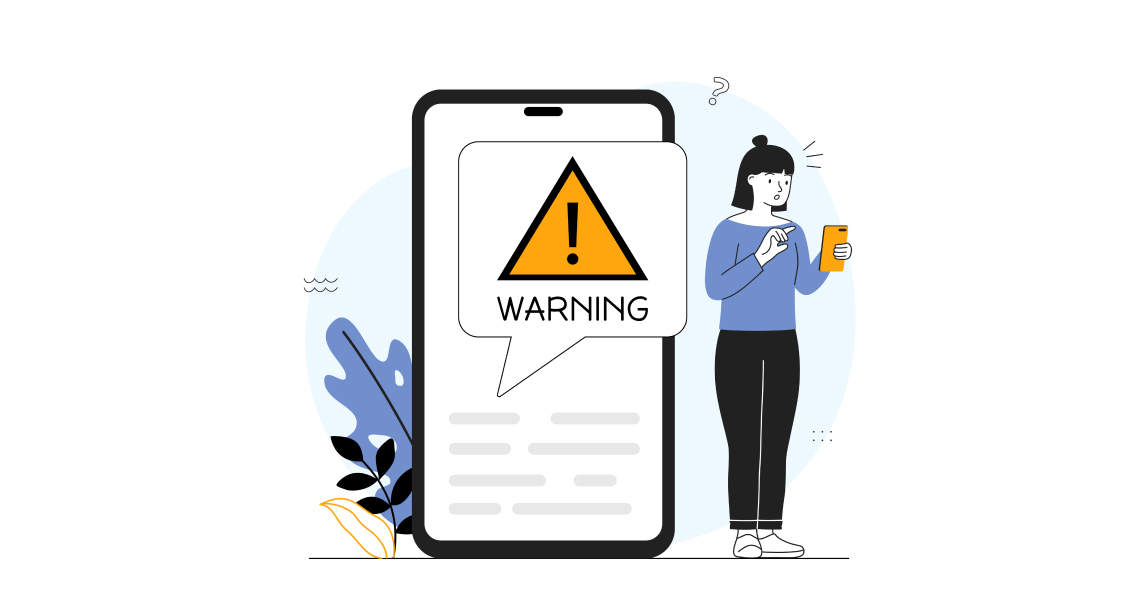
When we browse the internet, we expose ourselves to several kinds of online threats including phishing, identity theft, viruses/malware, and social engineering. Safe browsing practices help minimize the chances of falling victim to cybercriminals and data breaches.
Top 10 Practices for Safe Online Browsing
If you looked into security features and privacy policies before signing up with an internet service provider in your area, kudos to you! It's smart to do everything in your power to fortify your online defenses.
Here are ten internet browsing practices to further enhance your online safety:
1. Keep Your Browser Updated
Developers of web browsers regularly release updates to deliver new features, security patches, and enhance performance. These updates are meant to improve user experience and eliminate vulnerabilities.
Many websites don't support older versions of web browsers due to incompatibility issues and security concerns. Therefore, keeping your browser up-to-date is fundamental to enable seamless browsing and protect your device from cyberattacks.
2. Visit Websites with HTTPS
There's an easy way to tell whether a website you're visiting offers a secure connection. If you see "https" at the beginning of the URL (web address), consider yourself protected.
Hypertext Transfer Protocol Secure (HTTPS) encrypts the data you send or receive over the web. URLs that start with "http" only are insecure and susceptible to third-party interference.
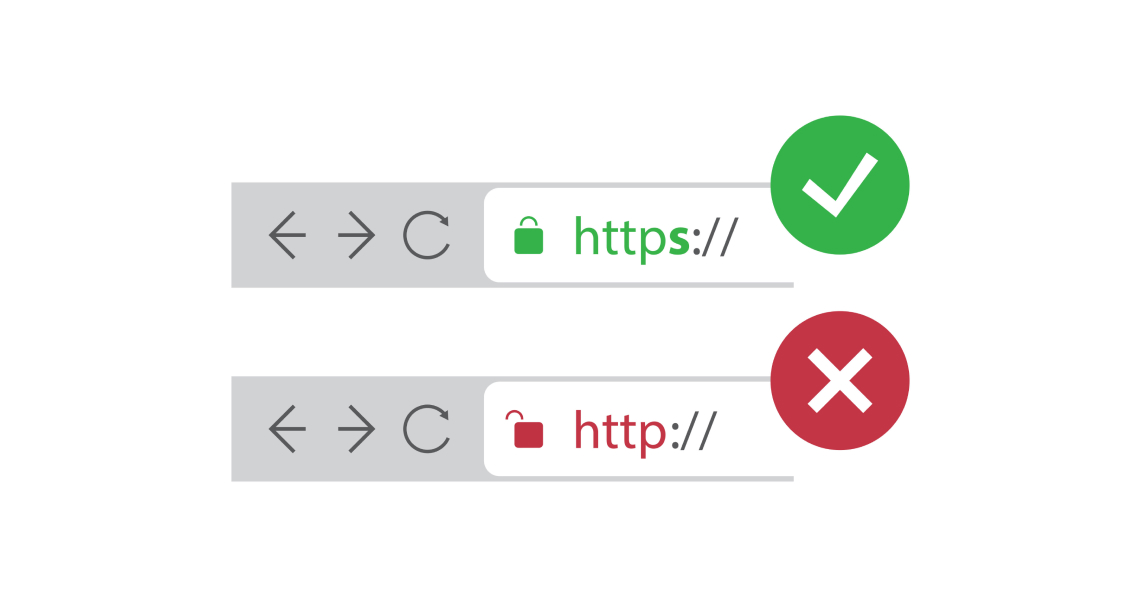
Many browsers display a lock icon or exclamation mark next to the web address to notify users of its security status. An intact lock icon indicates that the website is secure whereas an exclamation mark suggests otherwise.
3. Clear Your Cache & Cookies Often
Most websites you visit use cookies to track your online activity. The data they collect is used for saving your login details, ad targeting, and improving the overall experience. While accepting these cookies has its advantages, they inevitably weaken your privacy.
Hackers can steal cookies on your system to access your personal information. Deleting your browser cookies and cache frequently helps protect your data from advertisers/third parties. It's a quick and simple procedure available to all modern browsers.
4. Install an Ad Blocker
Pop-up ads are such a nuisance, especially when you're bombarded with them out of nowhere. You visit a web page to see some content that matches your query, but all you see is a screen covered in annoying ads!
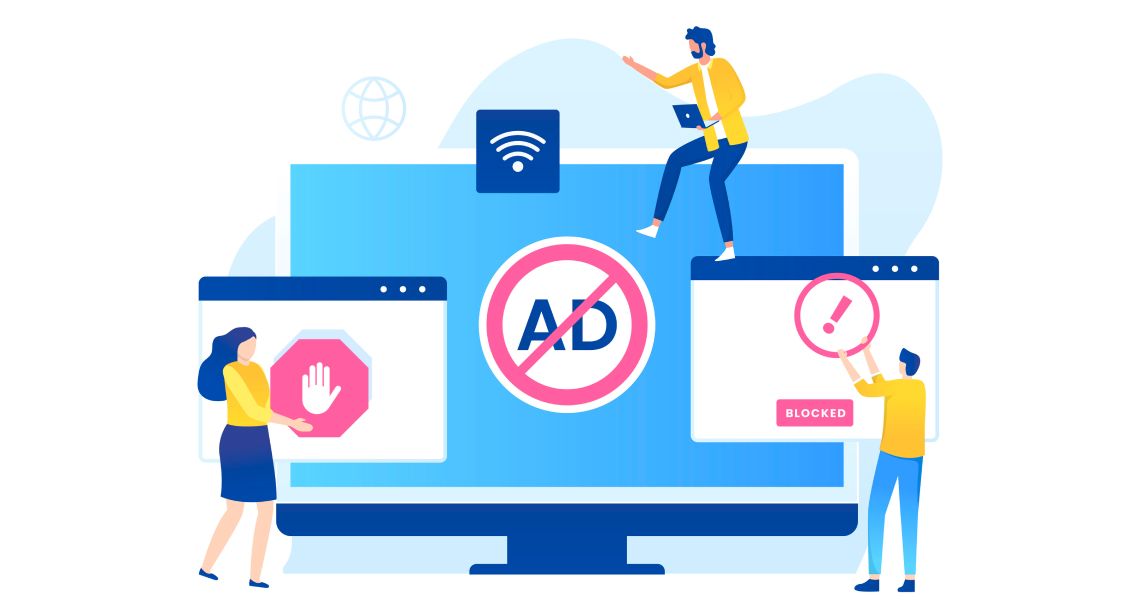
Apart from being bothersome, these ads can be dangerous too; they might accompany malware or redirect you to unsafe content.
Installing an ad-blocker extension in your browser can resolve the matter. However, do allow ads on trusted and favored sites, as it helps them generate revenue and remain operational.
5. Invest in a Reliable VPN
A Virtual Proxy Network (VPN) lets you browse the internet anonymously - neither hackers nor internet providers can see your online activity. While several free VPN extensions and applications are available, they are not recommended.
Paid VPN providers encrypt data and hide your IP address to protect your privacy. On the other hand, free VPN providers simply channel user data to a private server and sell it for personal profit.
6. Get Anti-Virus & Firewall
No matter how cautious you are while browsing the internet, reliable anti-virus software and firewall protection are a must. Malware and unsafe content can be caught from many unsuspected sources, so beware.
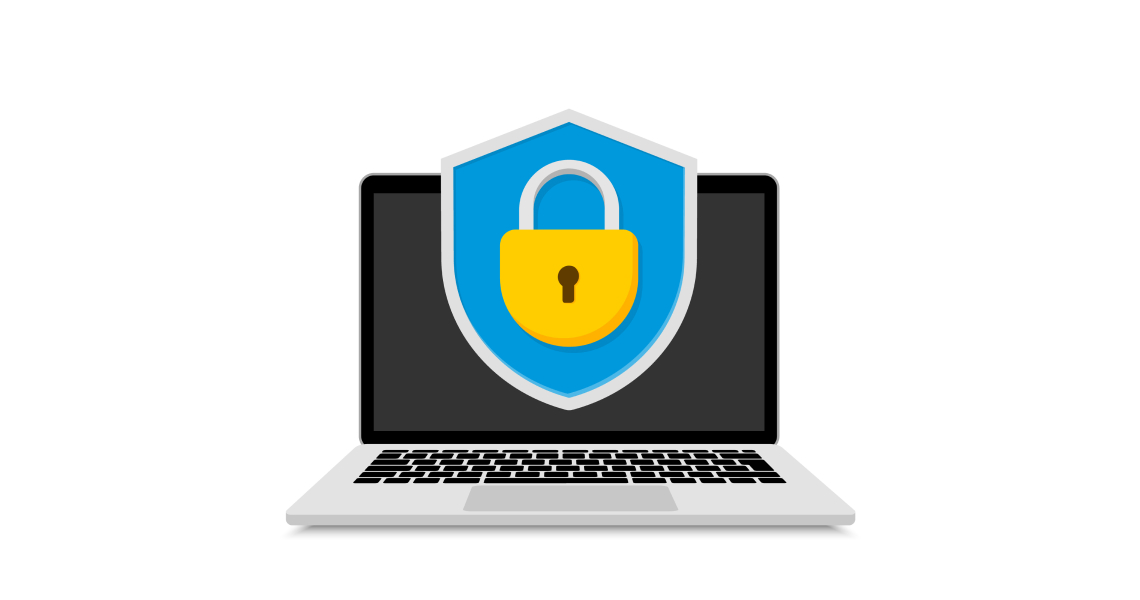
Once you've installed an effective anti-virus program, it will detect threats and keep you out of harm's way on its own. The majority of security breaches and virus attacks happen due to human error - the firewall shields you from dire consequences.
7. Private Browsing on Public Computers
Whenever you're using a public computer, don't forget to switch to private browsing (also known as incognito mode). Site cookies, data entered in forms, and any other user information are not saved in private mode.
The advantage of private browsing is that anyone using the computer after you cannot access your browsing history or data shared over the network. Incognito browsing does not hide online activity from internet service providers (ISPs).
8. Better Password Management
Poor password management is a leading cause of data breaches worldwide. Using ingenious passwords, such as your date of birth doesn't help. Moreover, using the same password for all your online accounts makes it worse.
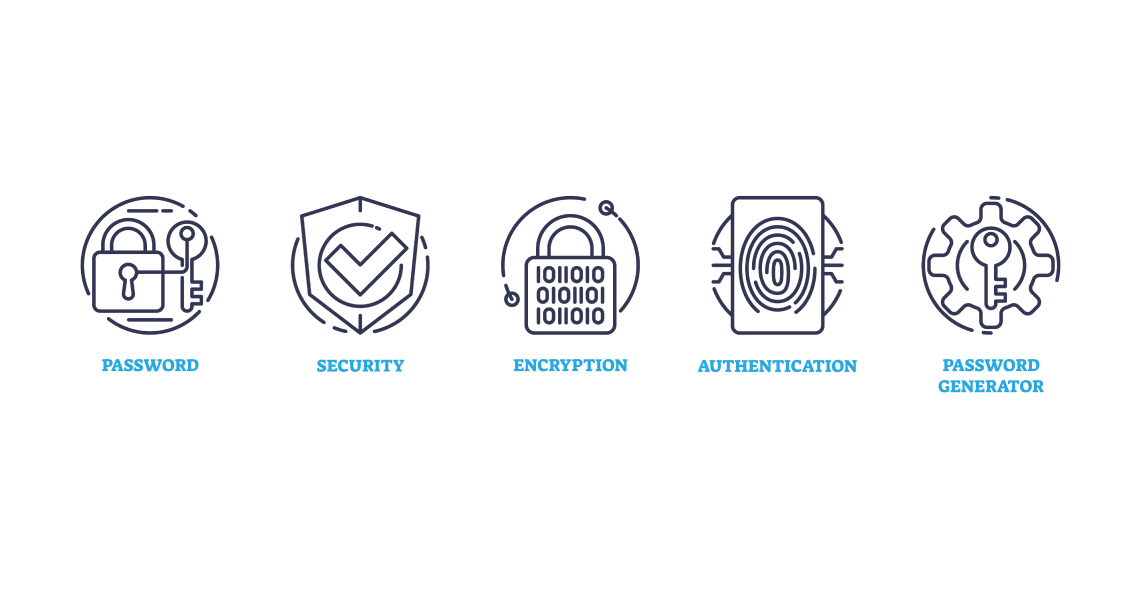
The more complex, lengthy, and unpredictable your passwords, the lower the chances of you being the target of a cybercrime. If you struggle with remembering difficult and different passwords for all your accounts, start using a .
9. Stop Downloading Stuff from Suspicious Sources
We download music, movies, games, documents, photos, and similar stuff from the web all the time. It's usually fine if you are familiar with the source and have been using it for a long time. If your antivirus software warns that the file could be infected, it's best to terminate the download request.
Be extra cautious when you wish to download something from a new or unfamiliar site; you may look up the website/app's reviews or trust score just to be sure. Additionally, refrain from downloading attachments in emails from suspicious or unknown senders.
10. Try Privacy-Focused Browsers and Search Engines
Modern browsers come with a handful of advanced privacy and security features. You can go to your browser's settings to turn off website trackers, third-party cookies, redirects, advertisements, and more.
Most popular search engines collect user data to give personalized search results. If you seek a more private experience, try lesser-known alternatives like DuckDuckGo, Mojeek, and Qwant.
What Else Can I Do to Stay Safe on the Internet?
A few bonus tips to take your online security to the next level:
- Sign up with an ISP that protects user data and offers decent security features
- Switch to multi-factor authentication where possible
- Keep your operating system and software updated
- Avoid sharing personal/sensitive information on public platforms
- Don't believe everything you see and everyone you meet online
- Backup your data (for recovery in the aftermath of a cyberattack)
